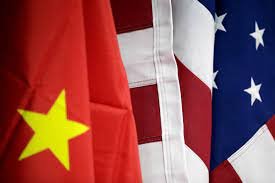The China-European Union (EU) relationship, a significant partnership in the global geopolitical landscape, is currently at a pivotal crossroads, according to a high-ranking official in Beijing. The nature of this juncture, which carries both opportunities and challenges, has implications not only for the two entities involved but also for international politics and commerce.
Complex Dynamics
The relationship between China and the EU is characterized by complex dynamics that encompass trade, diplomacy, human rights, and global governance. As two of the world’s largest economies, China and the EU are interconnected in myriad ways, making their interactions highly influential on a global scale.
The Crossroads Perspective
The assertion that the China-EU relationship is at a crossroads signifies a critical juncture in the partnership’s evolution. Several factors contribute to this assessment:
- Economic Interdependence: The economic ties between China and the EU have grown significantly over the years. As major trading partners, they depend on each other for goods and services. However, this interdependence is coupled with concerns over market access, fair trade practices, and intellectual property rights.
- Political Cooperation: China and the EU have historically cooperated on various global issues, including climate change, the Iran nuclear deal, and peacekeeping missions. Yet, differences over issues such as human rights, the South China Sea, and the situation in Hong Kong have caused strains in their diplomatic relations.
- Geopolitical Shifts: The changing dynamics of global politics, with the United States reevaluating its international partnerships and China’s expanding influence in Asia and beyond, have created a complex backdrop for the China-EU relationship.
Opportunities and Challenges
The crossroads moment in the China-EU relationship presents both opportunities and challenges:
Opportunities:
- Bilateral Trade and Investment: There is immense potential for deeper economic cooperation, including trade agreements, that can benefit both parties and promote global economic stability.
- Climate Action: China and the EU share a commitment to climate change mitigation, offering an avenue for collaboration on renewable energy and sustainability.
- Diplomatic Influence: As significant players in international diplomacy, China and the EU can combine their efforts to address global challenges such as the COVID-19 pandemic, conflict resolution, and humanitarian aid.
Challenges:
- Economic Disputes: Ongoing trade disputes and issues related to market access and intellectual property rights need to be resolved to ensure a stable economic partnership.
- Human Rights and Values: Differences in political values, human rights concerns, and geopolitical conflicts can strain diplomatic relations.
- Global Competition: The global landscape is increasingly competitive, with China, the EU, and other powers vying for influence in areas like technology, space, and infrastructure.
Conclusion
The assessment that the China-EU relationship is at a crossroads underscores the need for both parties to carefully navigate the complexities of their partnership. As they face a changing global landscape and shifting geopolitical forces, finding common ground on key issues while managing differences will be pivotal. The future of this relationship holds the potential to shape not only their bilateral ties but also the broader dynamics of international politics and trade.

China-EU Relationship at a Crossroads: Insights from a Top Official in Beijing


